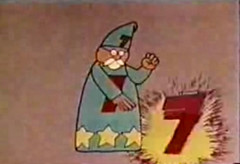Richard Rorty 1931-2007
From Contingency, Irony, and Solidarity:
By seeing every human being as consciously or unconsciously acting out an idiosyncratic fantasy, we can see the distinctively human, as opposed to animal, portion of each human life as the use for symbolic purposes of every particular person, object, situation, event, and word encountered in later life. This process amounts to redescribing them, thereby saying of them all, "Thus I willed it."
Seen from this angle, the intellectual (the person who uses words or visual or musical forms for this purpose) is just a special case—just somebody who does with marks or noises what other people do with their spouses and children, their fellow workers, the tools of their trade, the cash accounts of their businesses, the possessions they accumulate in their homes, the music they listen to, the sports they play or watch, or the trees they pass on their way to work. Anything from the sound of a word through the color of a leaf to the feel of a piece of skin can, as Freud showed us, serve to crystallize a human being's sense of self-identity. For any such thing can play the role in an individual life which philosophers have thought could, or at least should, be played only by things which were universal, common to us all. It can symbolize the blind impress all our behavings bear. Any seemingly random constellation of such things can set the tone of a life. Any such constellation can set up an unconditional commandment to whose service a life may be devoted—a commandment no less unconditional because it may be intelligible to, at most, only one person. (36-37)


3 Comments:
Carl,
I wonder if you remember:
"There are two kinds of philosophers - philosophers of the beautiful and philosophers of the sublime..."
I still, on occasion, listen to my recording of that talk.
I don't know if you saw Dennett's remarks at Slate.com, but we made a nearly identical observation almost ten years ago. Dennett writes,
"Dick Rorty was Peter Pan on the page, swashbuckling and enthusiastic, but he often seemed more like Eeyore in person, weary and diffident."
This is right on. I had a chance to speak with him on a couple of occasions at St. Andrews ... I will add that his wit and his graciousness was, in my experience anyway, unparralleled. Of course, what made that wit and graciousness all the more interesting was that one would swear that it was the wit and graciousness of Eeyore...
I hope you're well, Carl.
R/Eason
Did Herr Doktor Rorty know the Secret Handshake? Ah wager he did.
Robb,
I just checked for my tape and can't find it--must be stashed at my parents' house. I do have my complete Philosophy of the History of Philosophy literally within arm's reach. A couple times a year I'll put one in my Walkman and instantly return to Room 8.
I think about that weekend in New Haven a lot, actually, since that's where I live now. I often wonder which building the lectures took place in, which view of the Sterling Library so impressed me, which paintings in the Art Gallery I might have looked at, which restaurant Drew took us to, etc. I have a memory of a beautiful fountain, the original of which I haven't found.
I remember hovering around Rorty outside the lecture hall, waiting to ask some question and knowing I couldn't compete with the young co-ed who was arranging to meet him later at a cafe to discuss a paper.
Post a Comment
<< Home